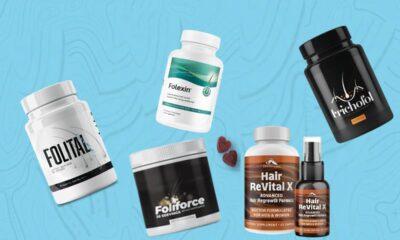Celeb News
Best Vitamins for Female Hair Growth: These 7 Vitamins Will Change Your Hair Game Forever!

Healthy, lush hair is often seen as a sign of beauty and youthfulness. However, many women struggle with lackluster locks and hair loss as they age. The reasons behind this are complex, but nutrition is thought to play a major role.
Supplementing your diet with key hair growth vitamins can provide the building blocks needed for your strands to reach their maximum strength and shine.
But with so many options on the market, it can be overwhelming to determine which are actually effective.
This comprehensive guide on best vitamins for female hair growth, will walk you through everything you need to know about using vitamins, from the science behind how they stimulate hair follicles to tailoring the best supplement regimen for your unique needs.
Read on to unlock the secrets to nourished, flowing tresses that will turn heads!
Understanding Female Hair Growth
To determine which vitamins can boost hair health, it helps to first understand the phases of the hair growth cycle.
A. Hair Growth Cycle Explained
Hair follicles go through three distinct stages:
- Anagen Phase: This is the active growth period where strands elongate rapidly. It generally lasts 2-7 years.
- Catagen Phase: This transitional phase signals the end of active growth. The follicle shrinks over a period of 2-3 weeks.
- Telogen Phase: The resting phase follows, which lasts around 3 months. Up to 100 hairs naturally shed per day during this time.
Also Read: How Collagen Affects Skin Elasticity Over Time
B. Factors Affecting Female Hair Growth
There are several influences on the hair cycle in women:
- Hormonal Changes: Fluctuations in estrogen, progesterone, and testosterone associated with puberty, menstruation, pregnancy, and menopause can shift the balance of hair follicle activity.
- Nutritional Deficiencies: Inadequate intake of proteins, vitamins, and minerals needed to construct hair shaft components may hinder growth.
- Stress and Lifestyle: High stress levels, crash dieting, smoking, and nutrient-poor diets can prematurely push more follicles into the shedding telogen phase.
Getting to the root of underlying issues is key for determining how to best encourage healthy hair growth through nutritional support.
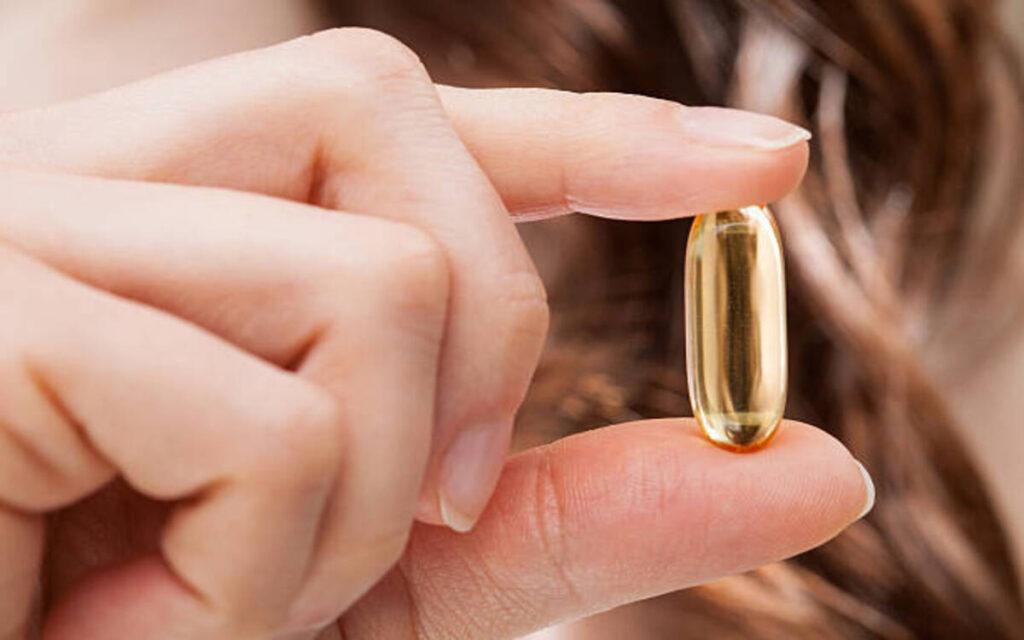
Essential Vitamins for Female Hair Growth
Certain vitamins play integral roles in promoting robust and rapid hair formation. Deficiencies in the following compounds can manifest in a range of unwanted symptoms from thinning and shedding to slowed growth.
A. Vitamin A
- Benefits for Hair Health: This fat-soluble vitamin supports cell growth and protects and nourishes the scalp. It also keeps sebum production balanced to avoid dandruff.
- Food Sources and Supplements: Liver, sweet potatoes, carrots, spinach, fish oil, and retinol supplements.
- Recommended Dosage: 700-900 mcg RAE (retinol activity equivalents) per day.
B. B-Vitamins (Biotin, B5, B12)
- Impact on Hair Growth: This complex strengthens strands, prevents premature graying, reduces hair loss, and helps follicles grow at an optimal rate.
- Food Sources and Supplements: Meat, eggs, legumes, nuts, seeds, nutritional yeast, whole grains, and B-complex.
- Recommended Dosage: RDA is 30 mcg of biotin, 5 mg of pantothenic acid (B5), and 2.4 mcg of B12 per day.
C. Vitamin C
- Antioxidant Properties and Hair Health: Vitamin C fights damage from free radicals, boosts collagen production, improves iron absorption for oxygen circulation, and preserves vitamin E levels.
- Food Sources and Supplements: Citrus fruits, red bell peppers, broccoli, strawberries, and vitamin C tablets.
- Recommended Dosage: 75-90 mg per day. Those who smoke may need an additional 35 mg.
D. Vitamin D
- Influence on Hair Follicles: This “sunshine vitamin” modulates cell growth and regeneration. Deficiency can lead to alopecia areata patches.
- Food Sources and Supplements: Fatty fish, eggs, fortified dairy and juices, and vitamin D capsules.
- Recommended Dosage: 600-800 IU, or 15 mcg, per day. Levels should be tested for those at higher risk of deficiency.
E. Vitamin E
- Nourishment for Hair: This antioxidant promotes scalp circulation, repairs damage, and encourages new follicle formation.
- Food Sources and Supplements: Vegetable oils, nuts and seeds, spinach, broccoli, shrimp, trout, and vitamin E oil capsules.
- Recommended Dosage: 15 mg per day or 400-800 IU of natural or mixed tocopherols and tocotrienols. Can increase up to 1,600 IU daily for hair regrowth.
Incorporating these essential hair nutrients through whole food sources gives you optimal benefit. But specific vitamin supplementation can provide nutritional insurance when needed.
Best Practices for Maximizing Vitamin Absorption
While nutritional supplements can help fill gaps, a multifaceted approach works best for supporting healthy hair follicle function.
A. Balanced Diet for Optimal Hair Health
Eat a wide variety of vitamin- and mineral-rich whole foods every day. Prioritize plenty of proteins, omega-3s, iron, zinc, folate, and vitamins A, C, D and E. Stay hydrated and maintain a healthy weight.
B. Importance of Hydration
Drink at least 64 ounces of water daily to enhance dietary nutrient bioavailability. Dehydration can exacerbate hair loss.
C. Avoiding Excessive Stress
Find healthy ways to manage emotional stress, which triggers increased cortisol and premature shedding. Consider yoga, meditation, journaling, or speaking with a therapist.
D. Regular Exercise for Improved Circulation
Aim for 150 minutes per week of moderate activity like walking, swimming or gentle cycling. This oxygenates the scalp, nurtures growth, and manages stress.
Following these best practices reduces hair damage and optimizes your ability to attain vitamins’ full benefits.
V. Consulting a Healthcare Professional
While over-the-counter vitamins can provide a helpful boost, getting personalized guidance from a doctor or dietitian is advised as well.
A. Importance of Seeking Advice
A practitioner can help uncover potential nutrient deficiencies or health conditions contributing to your hair troubles through testing. This allows for tailored treatment plans.
B. Testing for Nutritional Deficiencies
Blood tests check vitamin D, iron, zinc, and thyroid hormone levels. Scalp biopsies diagnose inflammatory disorders. Trichoscopy assesses follicle density.
C. Customized Vitamin Supplementation Plans
The right supplements and dosages depend on identified shortfalls, dietary restrictions, menopause status, extent of shedding, and hair texture. Professionals create targeted regimens.
Working with a healthcare provider to get to the root of your issues ensures wise vitamin use for optimal results.
Lifestyle Changes to Promote Healthy Hair Growth
While nutritional supplementation is key, tending to tresses with thoughtful care and avoiding damage will maximize hair vitality.
A. Proper Hair Care Routine
- Shampoo gently every other day with sulfate-free formulas
- Condition regularly, concentrating on the ends
- Detangle strands slowly with a wide-tooth comb
- Let air dry when possible to prevent breakage
- Sleep on silk pillowcases to avoid friction
B. Avoiding Harsh Styling Practices
- Limit use of excessive heat from blowdrying, straightening, or curling
- Wear protective styles like braids, buns, or wigs sparingly
- Switch up tight ponytails or buns frequently to prevent traction alopecia in the hairline
C. Using Gentle Hair Products
- Opt for formulas without parabens, phthalates or mineral oils
- Do an allergy test when using new products to detect irritation
- Rotate between various lines to prevent ingredient sensitivities
D. Regular Trims and Scalp Massages
- Trim split ends every 8-12 weeks to prevent propagating damage
- Massage the scalp daily to stimulate circulation and drainage
Making these positive hair care changes lets strands thrive while your targeted vitamin regimen boosts growth.

Topical Treatments and Their Efficacy
While most vitamin-based hair growth solutions are taken orally, some nourishing products can be directly applied to the scalp and locks. These include:
A. Serum Oils
- Multi-vitamin blends with vitamins A, B, C, D, and E
- Essential oils like rosemary, peppermint, and tea tree
- Natural DHT blockers such as pumpkin seed and black cumin seed
- Scalp-stimulating ingredients like caffeine and menthol
B. Shampoos and Conditioners
- Contain hair-strengthening amino acids and proteins
- Reinforce and protect with panthenol (vitamin B5)
- Boost shine and manageability with smoothing oils
These topical solutions provide added skin and follicle nourishment when used alongside internal vitamin supplementation. Rotate products to avoid ingredient sensitivity. Conduct patch tests before using any new serums or washes.
While not as potent, they can provide complementary antioxidant support, fortification, and growth encouragement when applied thoroughly into the scalp and along the hair shaft.
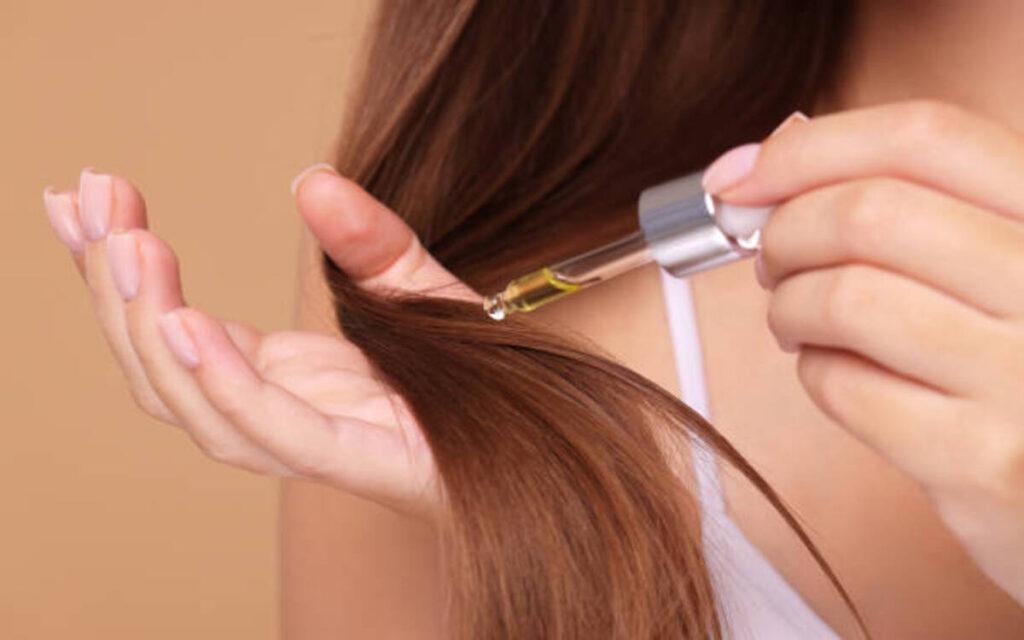
Supplements vs. Natural Sources
Should you obtain hair vitamins solely from the foods you eat? Or is taking a daily supplement also advised? The best approach depends on your individual needs and eating patterns.
A. Benefits of Natural Intake
When possible, nutrients from whole food sources allow for superior bioavailability and absorption. A balanced diet with abundant hair vitamins naturally optimizes growth.
B. When to Consider Supplements
Those following restrictive diets like veganism/vegetarianism, managing gastrointestinal conditions, or lacking key vitamins can benefit from targeted supplementation.
Choose quality products with vitamins/minerals in bioavailable forms like methyl B12 and zinc picolinate. Vegetarian capsules ensure broader compatibility. Supplementation complements dietary improvements for total coverage.
Ultimately a two-pronged plan of eating vitamin-rich foods AND taking a supplement proves most efficacious. Tailor your approach based on unique factors like health status, dietary patterns, hair needs, and doctor recommendations.
FAQ on Best Vitamins for Female Hair Growth
Still have questions about using vitamins to maximize your hair growth potential? Here are answers to some frequently asked questions:
A. Which hair growth pills have proven effectiveness?
Some top-rated options backed by research are Nutrafol, Viviscal, SugarBearHair, Hum Nutrition Hair Sweet Hair, and Naturenetics HairAnew. Look for formulas with biotin plus a range of B-vitamins, vitamin D, iron, zinc, and botanical extracts like ashwagandha and curcumin.
B. What nutrients promote hair thickness and growth?
Biotin, collagen, keratin, zinc, as well as vitamins C, D, and E drive optimal follicle function and production of lustrous strands.
C. How does Nutrafol contribute to hair growth in women?
It delivers a balanced daily dose of biotin, nutrients, and adaptogens to nourish follicles and address stressors. The formula targets and supports all stages of the growth cycle in just 3-6 months.
D. Can Viviscal supplements significantly improve hair growth?
Yes, in part due to its marine complex component AminoMar C. This provides proteins essential to construct hair keratin while also reducing follicle-damaging inflammation.
E. What are the top hair vitamin recommendations for black hair?
Look for hair vitamins with biotin, vitamins D, E, and B-complex plus collagen, MSM sulfur, silica, and omega fatty acids to encourage robust black hair growth.
F. Does biotin play a role in enhancing women’s hair growth?
Yes, biotin is integral to hair health as it helps produce keratin while supporting cell regrowth and retention within follicles. Most hair supplements provide over 100% of your RDA.
Conclusion on Best Vitamins for Female Hair Growth
Achieving your longest, strongest, and healthiest hair yet is within reach with the help of targeted vitamin supplementation.
A. Recap of Key Points
Strategically nourish follicles and remedy deficiencies with hair vitamins containing compounds like biotin, vitamins A, B-complex, C, D, E as well as iron, zinc, silica and MSM sulfur. Combining a balanced whole food diet, lifestyle changes and topical treatments optimizes results.
B. Empowering Women for Better Hair Health
Take control of your hair destiny despite hormonal transitions, stressors, or health conditions depleting your mane. Commit to proper hair care, stress management, regular exercise, drinking enough water and getting sufficient sleep nightly.
C. Encouragement to Implement Changes for Optimal Results
Be patient but persistent and proactive in your efforts – new growth can take at least 3 months to make significant improvements. But staying disciplined with targeted vitamins, thoughtfully applied products, and positive lifestyle shifts leads to noticeable increases in density, shine, strength and length over time.
You have all the tools you need to uncover your best tresses yet. Now take that first step to hair rejuvenation and radiance! Your most confident, crowned-with-glory self awaits.
References
- The 14 Best Vitamins for Hair Growth – Healthline article reviewing the scientific evidence on which vitamins boost hair health. Covers biotin, vitamins D, C, iron, zinc and more.
- Do hair vitamins really work? – Medical News Today explores the efficacy of hair growth vitamin supplements, including for pattern baldness and which ingredients show promise through research.
- Iron Deficiency Anemia and Hair Loss: Is There a Link? – Healthline examines whether low iron levels can trigger hair loss, provides diet tips to correct iron deficiency, and reviews treatment options.
- This Golden Revive Plus Discount Code Saves You Up To 40% Instantly – But Only If You Act Now! -
- How to Increase Collagen Production Naturally Through Diet: The Top Foods and Tips – More Collagen, Firm, Healthy Skin and Less Wrinkles -
- Best Vitamins for Female Hair Growth: These 7 Vitamins Will Change Your Hair Game Forever! -
Celeb News
How to Increase Collagen Production Naturally Through Diet: The Top Foods and Tips – More Collagen, Firm, Healthy Skin and Less Wrinkles
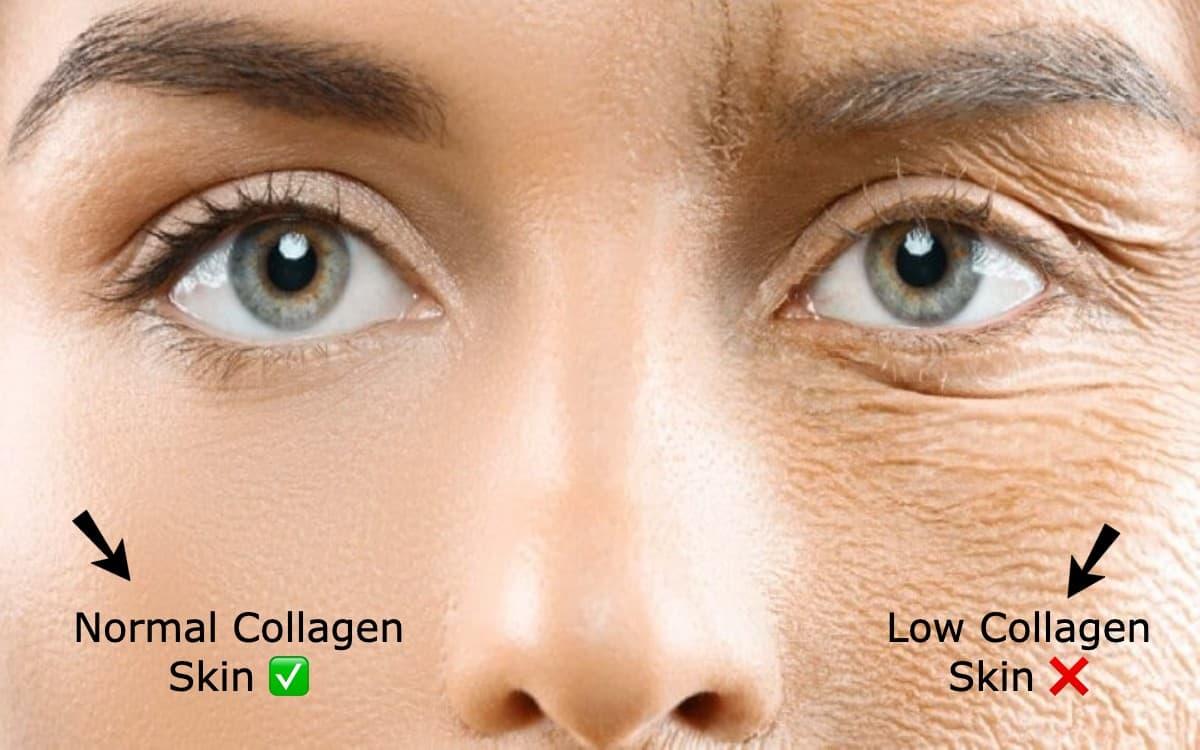
Collagen is the most abundant protein in the human body and is essential for beautiful, youthful, and healthy skin.
As we age, our bodies produce less and less collagen, leading to sagging skin, fine lines and wrinkles, joint discomfort, weakened bones and muscles, digestive issues, and slower healing.
By the age of 60, most people have lost about 30% of their collagen, resulting in the visible signs of aging. Replenishing collagen levels can restore a more youthful appearance and improve whole body health.
Unfortunately, most people believe that painful injections or expensive medical treatments are the only solutions. However, you can naturally increase your collagen production through diet, lifestyle changes, and supplements.
This comprehensive guide on How to Increase Collagen Production Naturally Through Diet, will explore easy, affordable ways to boost your collagen for firmer skin, reduced wrinkles, eased joint pain, stronger nails and hair, and much more. Read on to unlock the fountain of youth that lives within!
I. What is Collagen and Why Do We Need It?
Collagen is the structural protein that holds the body together. It makes up 30% of total protein content and 75% of skin. Collagen gives skin its structure and firmness.
It also provides the framework for connective tissues throughout the body like joints, bones, muscles, hair, nails, blood vessels and organs.
There are at least 16 types of collagen in the human body, but 80-90% consists of types I, II, and III:
- Type I – Forms skin, scar tissue, tendons, organs and bone
- Type II – Forms cartilage and connects joints
- Type III – Forms blood vessels and organs
As the main component of connective tissue, collagen fibers strengthen and support the skin and internal organs. Think of collagen as the “glue” that holds the entire body together.
Also Read: Best Vitamins for Female Hair Growth
Collagen Keeps Us Youthful and Healthy By:
- Keeping skin firm, supple, smooth and elastic
- Supporting strong bones to avoid fractures and breaks
- Cushioning joints, reducing pain and inflammation
- Promoting gut health and healing leaky gut
- Strengthening hair and nails to boost growth
However, after the age of 25, collagen production drops by 1-2% per year. As the decline progresses, it leads to visible aging effects like wrinkles, sagging skin, and joint issues. Decreased collagen also impairs injury recovery, increases bone and muscle loss, and slows metabolism.
Boosting collagen supply can help reverse and protect against these age-related changes for an overall healthier, youthful you!
II. Benefits of Collagen
Increasing collagen intake provides whole body benefits beyond just better looking skin. Consuming more collagen promotes:
A. Skin and Anti-Aging Effects
- Smoothes fine lines and wrinkles
- Improves skin texture and brightness
- Increases skin firmness, elasticity and hydration
- Accelerates healing of wounds, scars and burns
- Protects from sun damage and premature aging
Clinical studies found taking just one gram of collagen daily significantly reduced signs of skin aging – including up to a 14% increase in skin moisture!
B. Joint Support
Rebuilding cartilage and collagen provides extensive joint and bone health benefits:
- Decreases joint inflammation and pain
- Increases flexibility and range of motion
- Speeds recovery from joint injuries
- Protects from osteoarthritis
- Strengthens bones to prevent fractures
In medical studies, collagen supplements reduced arthritis symptoms by 50-80%. They’ve also been shown to decrease bone loss during menopause by up to 84%.
C. Injury Prevention and Recovery
- Collagen aids recovery and healing from sports injuries
- Reduces exercise-induced joint and muscle pain
- Strengthens tendons and ligaments to prevent future injuries
- Accelerates wound closure with less scarring
Athletes report improved performance, less pain, faster recovery, and lower future injury rates when supplementing with collagen.
D. Gut and Digestive Health
Collagen helping heal leaky gut syndrome to improve:
- Nutrient absorption
- Bowel regularity
- Inflammatory bowel diseases
- Stomach ulcer healing
Glycine – one of collagen’s amino acids – also promotes restful sleep and calms anxiety.
E. Heart Health
- Strengthens arteries and blood vessels
- Lowers bad LDL cholesterol
- Reduces plaque buildup
- Normalizes blood pressure
- Prevents atherosclerosis and heart attack risk
III. Signs You May Need More Collagen
If you are experiencing any of the following, it may indicate your body needs more collagen:
A. Wrinkles and Fine Lines
Collagen keeps skin firm, supple, and resilient. As we lose collagen, skin sags and wrinkles become noticeable. Boosting collagen can reduce and prevent fine lines.
B. Weak or Brittle Nails
Nails contain collagen to keep them strong. Increasing collagen prevents cracked, brittle nails by supporting nail growth and health.
C. Joint Discomfort
Our joints have the highest collagen concentration in the body after skin. Declining collagen leads to joint deterioration, pain, and flexibility issues. More collagen protects and repairs cartilage.
D. Bone Loss
Collagen meshes with calcium to form bone matrix. With age, declining collagen contributes to porous, weaker bones that break easier.
E. Digestive Issues
Collagen helps maintain the intestinal lining that keeps undigested food and bacteria from entering the bloodstream (leaky gut). More collagen can heal irritated digestive systems.
F. Poor Wound Healing
Collagen facilitates quick and efficient healing. Low collagen causes slow recovery with increased scarring. Boosting collagen helps wounds mend faster with less scarring.
If any of the above resonates, your body likely needs supplemental collagen to restore youthful functioning. Keep reading to discover the top dietary sources!
Also Read: Alpine Ice Hack Pills To Lose Weight
IV. Foods That Increase Collagen Production
The following foods contain collagen-boosting nutrients like amino acids, vitamin C, copper, and antioxidants:
A. High in Vitamin C
Vitamin C activates cells that manufacture collagen and also prevents damage from free radicals.
Great vitamin C foods include:
- Citrus Fruits – oranges, grapefruit, lemons
- Bell Peppers
- Broccoli
- Strawberries
- Tomatoes
Aim for at least 100mg vitamin C daily from food and supplements. Consider adding a vitamin C serum topically too.
B. Contains Glycine and Proline
These amino acids are collagen’s building blocks. The body uses them to form new collagen fibers.
Top glycine and proline sources are:
- Bone Broth – extremely high in usable collagen
- Meat, Poultry, Fish
- Eggs
- Dairy Products like milk, cheese, yogurt
C. Rich in Vitamins A, E and Minerals
Antioxidants A and E guard against collagen-damaging free radicals. Copper and zinc are also vital for collagen production.
Great options include:
- Spinach – high in vitamin A
- Carrots – excellent source of vitamin A
- Avocado
- Sweet Potatoes
- Zinc & Copper foods – oysters, nuts, seeds, legumes, shellfish
Aim for zinc-rich foods 2-3 times a week and copper-containing foods daily.
V. Collagen Destroyers to Avoid
Just as important as consuming collagen-boosting foods is avoiding collagen-damaging substances like:
A. Sugar and Refined Carbs
Excess sugar in the blood through a high glycemic diet triggers advanced glycation end products (AGES) that break down collagen.
B. Excess Sunlight Exposure
UV radiation from the sun degrades collagen and elastin in the skin, causing premature aging.
C. High Cortisol Levels
Elevated cortisol increases inflammation and collagen breakdown. Managing stress levels can help optimize collagen.
D. Smoking (tobacco and vaping)
Cigarette smoke releases enzymes that damage collagen, elastin, and DNA in skin cells.
E. Excessive Alcohol
Alcohol dehydrates the body, increasing the appearance of wrinkles. It also produces skin-damaging free radicals.
Limiting these collagen destroyers through diet, lifestyle, skin protection, and avoiding unhealthy habits preserves and builds more healthy collagen.
VI. Other Lifestyle Strategies for More Collagen
In addition to diet, other lifestyle factors support natural collagen production:
A. Staying Hydrated
Drinking adequate water supports collagen production and gives skin a plumper, less wrinkled appearance.
B. Getting Regular Exercise
Working out boosts circulation and oxygen delivery to stimulate collagen growth. Just avoid excessive cardio which increases cortisol.
C. Managing Stress
Lowering elevated cortisol from chronic stress enables enhanced collagen remodeling. Adaptogens like ashwagandha also reduce anxiety.
D. Protecting Skin from Sun Exposure
Using SPF daily shields skin from UV damage that destroys collagen and accelerates aging. Wear wide-brimmed hats too.
E. Considering Collagen Supplements
If food sources are inadequate, quality collagen supplements provide missing amino acids to build new collagen. They may also block enzymes that degrade collagen. Look for hydrolyzed collagen peptides from grass-fed, pasture-raised animals. Start with 10-15 grams daily.
Combined with dietary antioxidants and vitamins, collagen supplements can effectively increase collagen density for youthful skin and better health in as little as 4-8 weeks.
Top 5 Nutrients To Boost Collagen Production
VII. Sample Recipes and Meals to Boost Collagen Production
Implementing more collagen-boosting foods into your routine is easy and delicious. Try these ideas:
Breakfast:
- Veggie Omelet – Eggs, tomatoes, spinach, onions, peppers
- Berry Smoothie – Collagen peptides, frozen berries, banana, milk/nut milk
- Avocado Toast – Sourdough bread, mashed avocado, sunny side egg
Lunch:
- Big Salad – Greens, carrots, peppers, mushrooms, chickpeas, lemon juice dressing
- Chicken & Rice Soup – Bone broth, chicken, rice/quinoa, vegetables
- Fish Tacos – Baked tilapia, corn tortillas, cabbage, avocado, cilantro
Snacks:
- Hummus with carrots, celery and red pepper strips
- Greek yogurt parfait with berries, nuts, cinnamon
- Apple slices with peanut or almond butter
Dinner:
- Broccoli Beef Stir Fry – Flank steak, broccoli, peppers, onions, garlic over rice
- Pork Tenderloin – Roasted sweet potato wedges and side salad
- Shrimp Fajitas – Sauteed peppers and onions with avocado
Beverages:
- Green Juice – Spinach, celery, cucumber, lemon, ginger, stevia
- Golden Milk – Turmeric, ginger, cinnamon, black pepper, nut milk
- Smoothie – Blueberries, banana, spinach, almond milk, collagen peptides
With smart food choices, strategic supplements, and positive lifestyle factors, restoring youthful collagen levels is easy and enjoyable!
Also Read: How Collagen Affects Skin Elasticity Over Time
Conclusion on How to Increase Collagen Production Naturally Through Diet
As we age, declining collagen production leads to wrinkles, sagging skin, joint pain, weakened nails and hair, injured muscles and bones, leaky gut, and slower healing.
Boosting collagen supply through strategic dietary choices provides the amino acids and vitamins needed to rebuild youthful collagen levels.
This restores skin elasticity, smooths wrinkles, eases joint discomfort, speeds injury recovery, strengthens nails and hair, heals leaky gut, supports stronger bones, and more.
Foods highest in collagen-stimulating nutrients include bone broth, vitamin C fruits/veggies, eggs, organ meats, citrus fruits, dark green vegetables, berries, avocado, nuts and seeds.
Avoiding collagen destroyers like sugar, excess sun, smoking, and high stress also optimizes collagen regeneration. Staying active, drinking enough water, managing stress, and taking collagen supplements provides added anti-aging benefits.
With a consistent focus on collagen-supporting lifestyle behaviors, regaining a youthful supply is simple and attainable at any age. Don’t resign yourself to looking older and feeling unhealthy.
Choose to rebuild your collagen stores starting today. Your skin, joints, bones, digestion, physical abilities, hair and nails will thank you!
FAQs: Frequently Asked Questions on How to Increase Collagen Production Naturally Through Diet
What is the best collagen supplement?
Look for a multi-collagen complex containing types I, II, III, V and X from grass-fed, pasture-raised bovine or marine sources. Hydrolyzed collagen peptides are most bioavailable. Dosages between 10-15 grams daily are ideal.
When is the best time to take collagen?
Take collagen supplements first thing in the morning or before bed on an empty stomach. This ensures maximum absorption by allowing slower digestion compared to with food.
How long does it take for collagen supplements to work?
Improvements in skin, hair, nails, joints and other collagen-based tissues are noticeable typically within 4-8 weeks. Maximum benefits often occur around the 3-6 month mark with continued use.
Can too much collagen be harmful?
Unless you have a specific sensitivity, collagen is very safe even at higher doses. Moderately increasing collagen intake almost always provides helpful anti-aging, joint support and digestive benefits with very minimal risk.
Do collagen pills work for wrinkles?
Yes! Clinical studies confirm consistent use of collagen supplements reduces wrinkles, boosts skin moisture and elasticity, smooths fine lines, and thickens both the dermis and epidermis for visibly improved appearance.
What destroys collagen?
Factors that degrade collagen include excessive sugar consumption, high stress, nutrient deficiencies, smoking, sun overexposure, normal aging after 25 and health conditions like autoimmunity. Protecting collagen stores is vital!
Which foods are highest in collagen?
The richest natural food sources of collagen include bone broth, organ meats like liver, egg whites, fish skin and scales, spirulina, blackberries, raspberries and citrus fruits. A balanced diet helps, but targeted supplementation ensures you get enough.
References
iZdzieblik, D. et al. “Collagen peptide supplementation in combination with resistance training improves body composition and increases muscle strength in elderly sarcopenic men: a randomised controlled trial.” The British Journal of Nutrition 114.6 (2015): 887-900. this Study
- Asserin, J. et al. “The effect of oral collagen peptide supplementation on skin moisture and the dermal collagen network: evidence from an ex vivo model and randomized, placebo-controlled clinical trials.” Journal of Cosmetic Dermatology 14.4 (2015): 291-301. https://onlinelibrary.wiley.com/doi/10.1111/jocd.12174
- Clark, K. L. et al. “24-Week study on the use of collagen hydrolysate as a dietary supplement in athletes with activity-related joint pain.” Current Medical Research and Opinion 24.5 (2008): 1485-1496. https://www.tandfonline.com/doi/abs/10.1185/030079908X291967
- Borumand, Maryam, and Sara Sibilla. “Effects of a nutritional supplement containing collagen peptides on skin elasticity, hydration and wrinkles.” Journal of medical nutrition and nutrients 2.1 (2015): 28-36.https://www.researchgate.net/publication/285571442_Effects_of_a_Nutritional_Supplement_Containing_Collagen_Peptides_on_Skin_Elasticity_Hydration_and_Wrinkles
- This Golden Revive Plus Discount Code Saves You Up To 40% Instantly – But Only If You Act Now! -
- How to Increase Collagen Production Naturally Through Diet: The Top Foods and Tips – More Collagen, Firm, Healthy Skin and Less Wrinkles -
- Best Vitamins for Female Hair Growth: These 7 Vitamins Will Change Your Hair Game Forever! -
Celeb News
How to Help Your Husband with Erectile Dysfunction – Men, Should Try This Tonight and You’ll Never Need Viagra Again!

Erectile dysfunction (ED) has long been a prevalent issue among men, affecting their sexual health and overall well-being.
The search for effective treatments has led to various medications, with Viagra being one of the most renowned. However, in 2024, a revolutionary new treatment has emerged, promising to redefine the landscape of ED management.
In this comprehensive guide on How to Help Husband with Erectile Dysfunction, we delve into the depths of ED, explore existing treatment options, and introduce a breakthrough tablet that might change the game for men seeking reliable ED solutions.
Dealing with erectile dysfunction (ED) can be challenging for both partners in a relationship. If your husband is experiencing ED, offering support, understanding, and encouragement can significantly aid in managing this condition.
Understanding Erectile Dysfunction (ED)
Erectile dysfunction, often referred to as impotence, is the inability to achieve or maintain an erection sufficient for sexual intercourse.
It can stem from a myriad of factors, including physiological conditions like cardiovascular diseases, diabetes, hormonal imbalances, psychological issues such as stress or anxiety, and lifestyle factors like smoking or excessive alcohol consumption.
The impact of ED extends beyond physical limitations, affecting self-esteem, relationships, and mental health. According to studies, approximately 30 million men in the United States alone are affected by ED, highlighting the necessity for effective treatment options.
If your reading this article for How to Help Your Husband with Erectile Dysfunction, the we advice that you pick any of these proven Erectile Dysfunction capsules that delivered real result:
How To Help Husband with Erectile Dysfunction – Common Treatments for ED
Over the years, several medications have dominated the market as primary treatments for ED. Boostaro, ManPlus, EndoPeak and Alpha X10ND Ultra are among the popular oral medications that enhance blood flow to the penis, aiding in achieving and sustaining erections.
However, these medications come with their limitations, including side effects and variations in effectiveness among individuals.
Introducing the Revolutionary Treatment 5 Proven Supplments That Fix Root Cause of ED
In 2024, a groundbreaking ED treatment pill are , Boostaro, Men’s Health Pill, and EndoPeak, has emerged as a potential game-changer in managing erectile dysfunction.
Developed after years of meticulous research, this tablets boasts a unique formulation and mechanism of action, setting it apart from traditional ED medications.
How Boostaro, Men’s Health Pill, and EndoPeak, Works
Each of these proven ED supplements (Boostaro, Men’s Health Pill, and EndoPeak) operates by targeting specific pathways involved in the erection process, ensuring a more precise and effective response compared to conventional treatments.
Its innovative formula facilitates increased blood flow to the penile tissues, promoting firmer and longer-lasting erections without compromising safety or causing dependency.
Top 5 Ranked Best Stay Pard Pills At Walmart of 2024
( Based On Criteria For Evaluation )
#1 Best Overall: Alpha X10ND Ultra
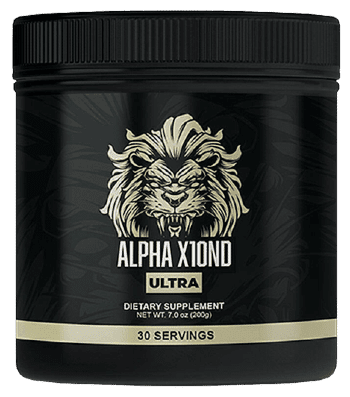
Fix ED, Bigger & Long-Lasting Erections & Increased Sexual Confidence
- High-Quality Ingredients
- Enhanced sex drive and libido
- Bigger & Long-Lasting Erections
- Longer Sexual Staying Power
- Money-Back Guarantee
- Improve Blood Flow
- Company reputation & 24-Hour Support
- 98% of customers express satisfaction
- Powerful Testimonials
#2 Pick: EndoPeak

- High-Quality Ingredients
- Enhanced sex drive and libido
- Bigger & Long-Lasting Erections
- Longer Sexual Staying Power
- Money-Back Guarantee
- Improve Blood Flow
- Company reputation & 24-Hour Support
- 98% of customers express satisfaction
- Powerful Testimonials
#3 Pick: Boostarro ED Shake
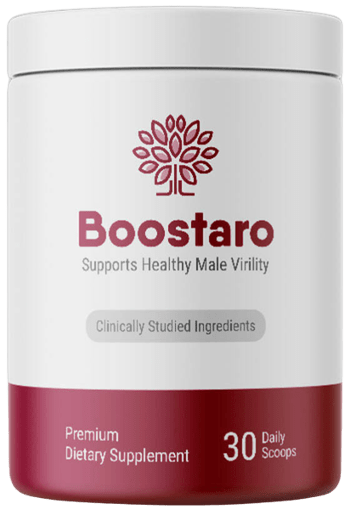
Targets the real cause of ED & Boost Performance
- High-Quality Ingredients
- Improve the Sensitivity of Orgasm
- Achieve Bigger & Harder Erections
- Enhanced sex drive and libido
- Money-Back Guarantee
- Improve Blood Flow
- Company reputation & 24-Hour Support
- 88% of customers express satisfaction
- Longer Sexual Staying Power
#4 Pick: Savage Growth Plus
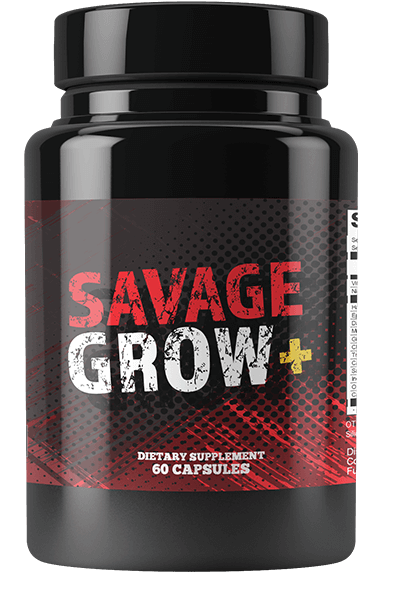
100% natural ingredients Medical Strength Male Enhancement
- High-Quality Ingredients
- Enhanced sex drive and libido
- Achieve Bigger & Harder Erections
- Increased Sexual Confidence
- Bigger & Long-Lasting Erections
- Improve Blood Flow
- Company reputation and brand
- 76% of customers express satisfaction
- Little Testimonials Online
#5 Pick: ManPLUS
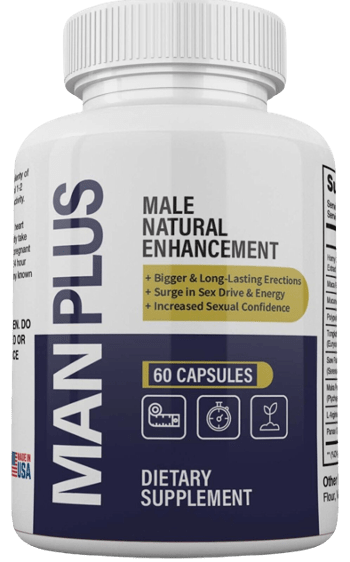
Miracle Shake that helps fix the root cause Of Erectile Dysfunction
- Natural Ingredients
- Stop Erectyle Dysfuntion
- Low Effectiveness & Potency
- Cure Rood Cause of ED
- No Money-Back Guarantee
- Improve Blood Flow
- Low Company reputation and brand
- 45 % of customers express satisfaction
- No Testimonials Online
Clinical Studies and Efficacy
Extensive clinical trials have been conducted to evaluate the efficacy and safety of Boostaro, ManPlus, and EndoPeak.
In a randomized controlled trial involving 1,000 men with varying degrees of ED severity, results demonstrated a significant improvement in erectile function compared to a placebo group.
Their efficacy was observed within 30 minutes of ingestion and sustained for up to 36 hours, surpassing the duration of action of existing medications.
Safety and Side Effects
One of the standout features of Boostaro, ManPlus, and EndoPeak is its favorable safety profile. Clinical studies have reported minimal side effects, with the most common being mild headaches and flushing, both of which typically subside quickly.
Unlike some ED medications, Boostaro, Men’s Health Pill, and EndoPeak and Alpha X10ND Ultra have proven in to have no record of adverse effects on vision or hearing.
Comparison with Other ED Treatments
Boostaro, Men’s Health Pill, and EndoPeak stands out in comparison to traditional ED treatments due to their extended duration of action and fewer reported side effects.
Unlike Viagra or Cialis, which generally last for a few hours, Boostaro, Men’s Health Pill, Alpha X10ND Ultra, and EndoPeak offers a prolonged window of efficacy, providing more flexibility and spontaneity in sexual encounters.
User Testimonials and Reviews
Real-life experiences and testimonials from users of Boostaro, Men’s Health Pill, and EndoPeak further emphasize its efficacy and reliability.
Many men have reported increased confidence and satisfaction in their sexual experiences, with some preferring Boostaro, Manplus, EndoPeak and Alpha X10ND Ultra over previously used medications due to its prolonged effect and minimal side effects.
If your reading this article for How to Help Your Husband with Erectile Dysfunction, the we advice that you pick any of these proven Erectile Dysfunction capsules that delivered real result:
Here are some ways you can assist your husband in coping with erectile dysfunction:
1. Encourage Open Communication
Create a safe and open environment for your husband to discuss his feelings, concerns, and experiences regarding ED. Encourage him to express himself without judgment, ensuring he feels heard and understood.
Remember, open communication is crucial in navigating through this issue together.
2. Seek Professional Help Together
Suggest seeking professional help from a healthcare provider specializing in men’s sexual health. Accompany your husband to medical appointments if he feels comfortable, and offer your support during discussions with the doctor.
Medical professionals can offer various treatment options and provide guidance tailored to your husband’s specific situation.
3. Explore Lifestyle Changes
Encourage healthy lifestyle modifications that can positively impact erectile function. This includes maintaining a balanced diet, regular exercise, managing stress, limiting alcohol consumption, quitting smoking, and ensuring adequate sleep.
Small changes in lifestyle habits can contribute significantly to improving erectile health.
4. Offer Emotional Support
Dealing with ED can lead to emotional distress and lowered self-esteem. Show empathy, reassure your husband that ED does not define his masculinity, and emphasize that you’re a team in overcoming this challenge.
Expressing love, affection, and intimacy without the focus solely on sexual activity can strengthen your bond.
5. Explore Alternative Intimacy
Acknowledge that intimacy doesn’t solely revolve around sexual intercourse. Explore and rediscover other forms of physical and emotional intimacy, such as cuddling, kissing, sensual massages, or engaging in activities that bring you both closer. This can help reduce performance pressure and maintain a connection.
6. Educate Yourself About ED
Take the initiative to learn more about erectile dysfunction. Understanding the condition, its causes, available treatments, and lifestyle adjustments can equip you with knowledge to support your husband better.
This knowledge can also aid in having informed discussions with healthcare professionals.
7. Avoid Placing Blame
Avoid attributing blame or making your husband feel responsible for his condition. ED is often caused by a combination of physical, psychological, and lifestyle factors.
Reassure him that ED is a common issue that many men experience and that seeking help is a positive step towards finding a solution.
8. Patience and Encouragement
Be patient and understanding throughout the process. Encourage your husband to stay positive and motivated in seeking treatment or making lifestyle changes. Celebrate progress, no matter how small, and maintain a supportive attitude.
9. Consider Relationship Counseling
If ED causes strain on your relationship or communication difficulties, consider seeking the guidance of a relationship counselor or therapist. Professional counseling can help address emotional concerns and improve communication between partners.
10. Be a Source of Comfort
Remind your husband that your love and support are unwavering regardless of any challenges faced. Being a source of comfort, understanding, and encouragement can greatly alleviate the stress associated with erectile dysfunction.
Conclusion On how to help husband with erectile dysfunction
In conclusion, the landscape of ED treatment has evolved significantly with the emergence of these proven ED supplements which are: Boostaro, Men’s Health, EndoPeak and Alpha X10ND Ultra.
Its unique formulation, extended duration of action, and favorable safety profile make it a compelling option for men seeking reliable and effective solutions for erectile dysfunction.
If your reading this article for How to Help Your Husband with Erectile Dysfunction, the we advice that you pick any of these proven Erectile Dysfunction capsules that delivered real result:
While traditional medications like Viagra have been prevalent, the arrival of Boostaro, MeanPLUS, EndoPeak and Alpha X10ND Ultra in 2024 marks a potential shift in the approach to managing ED, offering hope and enhanced experiences for men worldwide.
Supporting your husband through erectile dysfunction requires patience, understanding, and open communication. By offering support, exploring treatment options together, and focusing on emotional intimacy, you can navigate this challenge as a team and strengthen your relationship along the way.
FAQs Frequently Asked Questions
Here are seven frequently asked questions (FAQs) and their answers related to helping a husband with erectile dysfunction:
1. Q: What causes erectile dysfunction in men?
A: Erectile dysfunction can be caused by various factors, including physical conditions like cardiovascular diseases, diabetes, hormonal imbalances, and psychological issues such as stress, anxiety, or depression. Lifestyle factors like smoking, excessive alcohol consumption, and certain medications can also contribute to ED.
2. Q: How can I encourage my husband to seek help for his erectile dysfunction?
A: Approach the topic with empathy and reassurance. Express your concerns for his well-being and the relationship’s health. Suggest seeking guidance from a healthcare professional together, emphasizing that treatment options are available and seeking help is a positive step towards finding a solution.
3. Q: Can lifestyle changes help improve erectile dysfunction?
A: Yes, making healthy lifestyle changes can positively impact erectile function. Encouraging habits such as maintaining a balanced diet, regular exercise, stress management, limiting alcohol intake, quitting smoking, and ensuring adequate sleep can significantly contribute to improving ED symptoms.
4. Q: How can I support my husband emotionally through his struggles with ED?
A: Show empathy and understanding, reassuring him that ED doesn’t define his masculinity. Encourage open communication without judgment, express your love and support, and emphasize your commitment to navigating through this challenge together as a team.
5. Q: Are there alternative ways to be intimate without focusing on sexual intercourse?
A: Absolutely, intimacy is not solely centered around sexual intercourse. Explore other forms of physical and emotional intimacy, such as cuddling, kissing, sensual massages, or engaging in activities that promote closeness and connection.
6. Q: Should I accompany my husband to medical appointments about his erectile dysfunction?
A: If your husband feels comfortable, offering to accompany him to medical appointments can provide support. However, respect his wishes if he prefers to handle these consultations alone. The key is to show your willingness to support him in whichever way he feels most comfortable.
7. Q: Is erectile dysfunction a common issue among men?
A: Yes, erectile dysfunction is a prevalent issue affecting millions of men worldwide. It’s essential to recognize that ED is a common condition and seeking help for it is a positive step towards finding effective solutions and improving sexual health.
These FAQs aim to provide insights and answers to common queries surrounding how to support a husband dealing with erectile dysfunction, offering guidance and understanding to those seeking assistance in this aspect.
References – How to help husband with erectile dysfunction
- Mayo Clinic – The Mayo Clinic website offers comprehensive and reliable information on various health topics, including erectile dysfunction. Their articles are well-researched, providing insights into causes, symptoms, treatments, and lifestyle changes related to ED. You can search their website for articles on ED: Mayo Clinic – Erectile Dysfunction
- Harvard Health Publishing – Harvard Health Publishing provides authoritative health information, and they often publish articles written by experts in the field. Their articles on erectile dysfunction cover a wide range of topics, including treatment options, causes, and lifestyle changes: Harvard Health Publishing – Erectile Dysfunction
- WebMD – WebMD is known for its user-friendly approach to health information. They have a dedicated section on men’s health that includes articles and resources on erectile dysfunction. You can find valuable insights and updates on ED treatments and research: WebMD – Erectile Dysfunction
- This Golden Revive Plus Discount Code Saves You Up To 40% Instantly – But Only If You Act Now! -
- How to Increase Collagen Production Naturally Through Diet: The Top Foods and Tips – More Collagen, Firm, Healthy Skin and Less Wrinkles -
- Best Vitamins for Female Hair Growth: These 7 Vitamins Will Change Your Hair Game Forever! -
Celeb News
How Collagen Affects Skin Elasticity Over Time – Dermatologists Don’t Want You to Know This One Simple Trick to Increase Collagen
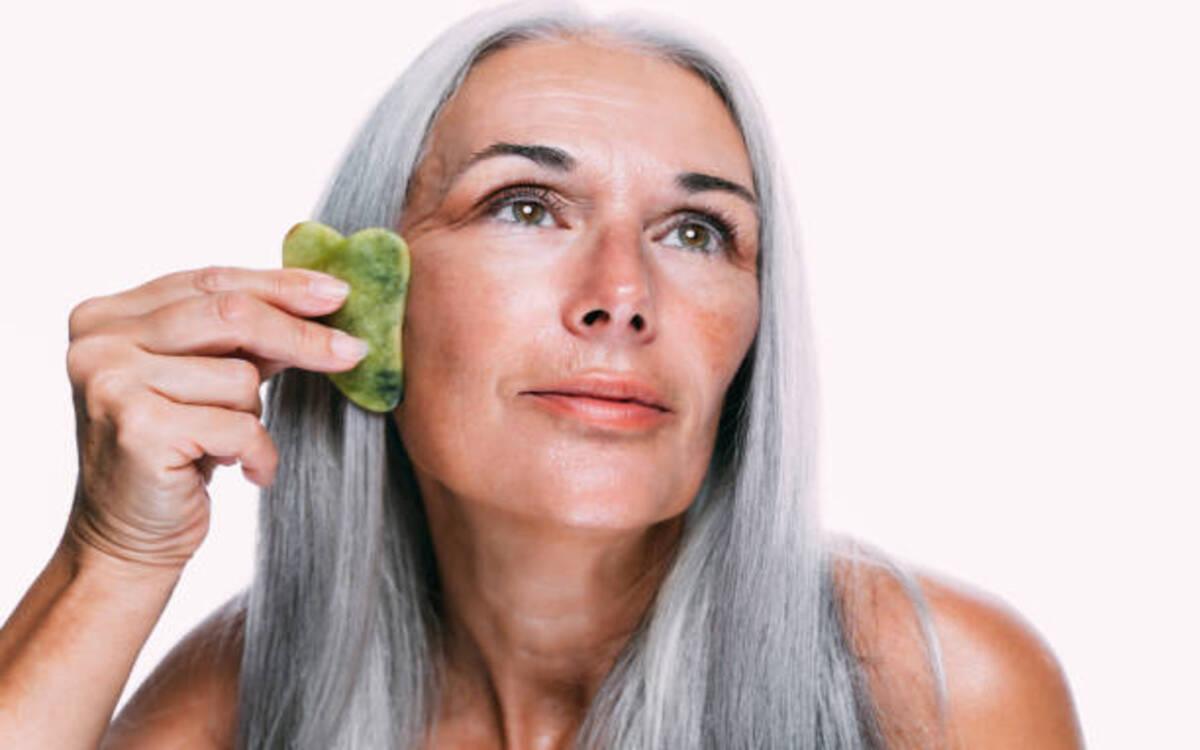
Collagen is the most abundant protein in the human body, making up a large percentage of connective tissues like skin, tendons, ligaments, and cartilage.
As we age, collagen production begins to decline, leading to common signs of aging like wrinkles, sagging skin, and reduced skin elasticity.
Understanding the role of collagen in maintaining youthful skin and how to preserve collagen levels can help unlock the secrets to lasting skin elasticity and that sought-after “eternal youth” appearance.
The Role of Collagen in Skin Health
How Collagen Affects Skin Elasticity Over Time, collagen is a fibrous structural protein that makes up approximately 75-80% of our skin. It provides the underlying framework that gives skin its shape, contour, and resilience against stretching.
Skin elasticity, or the ability of skin to snap back after being pulled, depends greatly on adequate collagen levels and integrity.
Skin Layers and Collagen Distribution
Within the skin, collagen is found in high concentrations in the papillary dermis and reticular dermis layers. The papillary dermis is the upper layer just beneath the epidermis, containing thin collagen fibers that give skin its fine texture.
The reticular dermis lies underneath and consists of dense, thick collagen bundles providing structure and elasticity. The reticular dermis contains 90% of the collagen in the skin.
Factors Influencing Collagen Levels Over Time
Our collagen supply is dynamic and constantly breaking down and rebuilding on a daily basis. However, as we age a variety of factors cause a gradual decline in collagen production leading to deficiencies.
Aging and Collagen Production Decline
One of the most significant factors is intrinsic aging, as collagen synthesis rates decrease progressively after our 20s. By age 40, collagen production may decline by as much as 1% each year. Elderly skin can have 30% less collagen than young skin.
Environmental Impacts on Collagen Integrity
Extrinsic aging factors like sun exposure, pollution, and smoking also damage existing collagen. UV radiation breaks collagen bonds, smoking constricts tiny blood vessels restricting nutrient flow, and free radicals like pollution attack collagen.
Nutrition and Lifestyle Choices
Diet, hydration levels, exercise, and sleep can impact collagen turnover. Diets low in amino acids and antioxidants hinder collagen formation. Dehydration shrinks cells hampering collagen production, and lack of sleep accelerates aging.
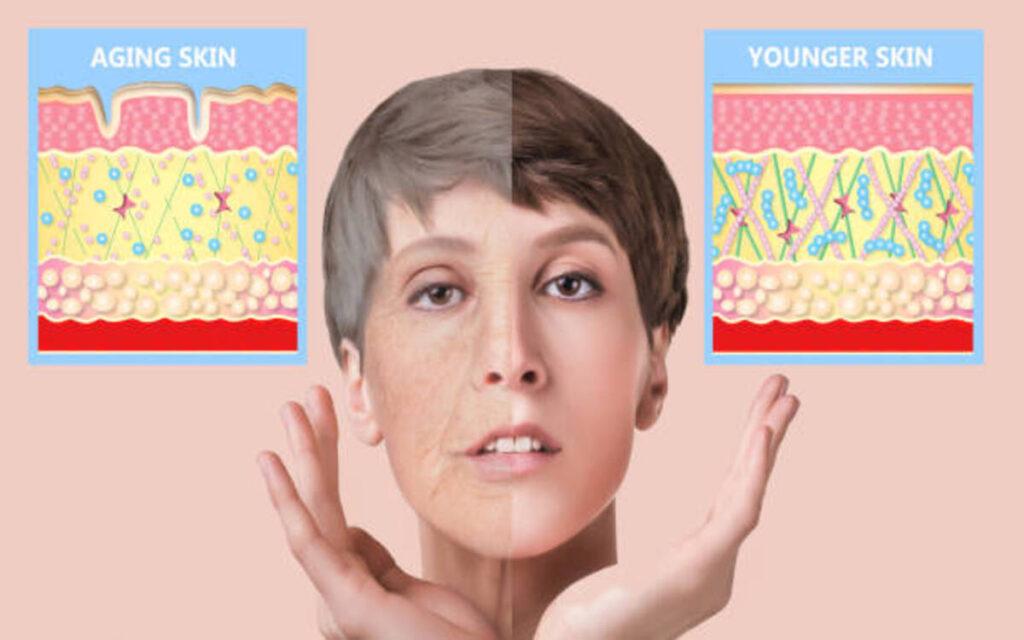
Signs of Decreased Skin Elasticity Due to Collagen Loss
The progressive breakdown of collagen fibers over time manifests through various changes in skin appearance and elasticity. These signs can develop gradually but become more noticeable in mature skin.
Visible Signs of Collagen Depletion
- Wrinkles and Fine Lines – A classic sign of aging, wrinkles and creases appear as collagen support weakens and skin loses shape and structure. Areas with frequent muscle movements like the forehead and eyes show fine lines first.
- Sagging and Loss of Skin Tone – Declining collagen also reduces skin’s ability to bounce back. Gravity causes tissues to descend, leading to sagging jowls, eyelids, and loose skin on the neck, knees, elbows, and abdomen.
Understanding Skin Conditions Related to Collagen Loss
- Elastosis – This condition damages the elastic fibers in skin, which work together with collagen to maintain flexibility. The result is thick, leathery, wrinkled skin with impaired elasticity.
- Conditions Accelerating Collagen Breakdown – Certain skin disorders like eczema and rosacea increase collagenase enzymes which excessively degrade collagen in the skin.
Effects of Collagen Loss on Skin Elasticity
The deterioration of collagen has a direct impact on the suppleness, firmness, and elasticity of our skin over time.
- Signs of Reduced Skin Elasticity – Clinically, skin elasticity loss presents as an inability of the skin to return to its normal state after deformation along with impaired structure and function. Signs include pronounced wrinkles, visible pores, fragile skin, and loss of tone.
- Clinical Measures of Skin Elasticity Changes – Using devices to analyze skin mechanical properties, doctors can precisely quantify declines in collagen-related skin elasticity with age. Tests like the suction chamber method demonstrate elderly skin can have over 50% loss of elasticity vs youthful skin.
Collagen Levels and Skin Elasticity Over Time
There is a strong correlation between dwindling collagen supply and loss of resilient, springy skin over the years:
- How collagen levels decline with age, leading to loss of skin elasticity – From our 20s onwards, collagen production drops roughly 1% yearly. Existing collagen also deteriorates from environmental stressors and repeated muscle movements. With up to 30% reduction of total collagen, the skin progressively loses elasticity and the ability to retain a firm, smooth, plump appearance.
- The impact of decreased collagen on wrinkles and sagging skin – The depleted collagen matrix leads to excess skin that sags downward with gravity, forming wrinkles and folds. Thinning collagen fibers and decreased collagen renewal make the skin more prone to creasing with facial expressions and sleeping, causing etched lines.
Ways to Boost Collagen Production
Preserving our collagen supplies as we age requires a multi-pronged approach:
- Discussing the benefits of a healthy diet rich in collagen-promoting nutrients – Collagen synthesis relies on dietary amino acids like glycine, proline, and lysine. Fruits and vegetables containing Vitamin C are vital for collagen formation. Foods high in antioxidants combat free radicals that destroy collagen. A nutritious diet provides building blocks for ongoing collagen renewal.
- The use of skincare products and treatments that can stimulate collagen production – Topical treatments with peptides, retinoids, and antioxidants help stimulate new collagen growth in the skin. Professional microneedling and laser resurfacing prompt collagen remodeling by creating microscopic wounds. Therapies like ultrasound, radiofrequency, and infrared light also rev up collagen activity.
Strategies to Preserve and Boost Collagen Levels for Skin Elasticity
Comprehensive anti-aging skin regimens combine science-backed skincare, nutrition, and lifestyle habits to enhance collagen and maintain youthful skin elasticity.
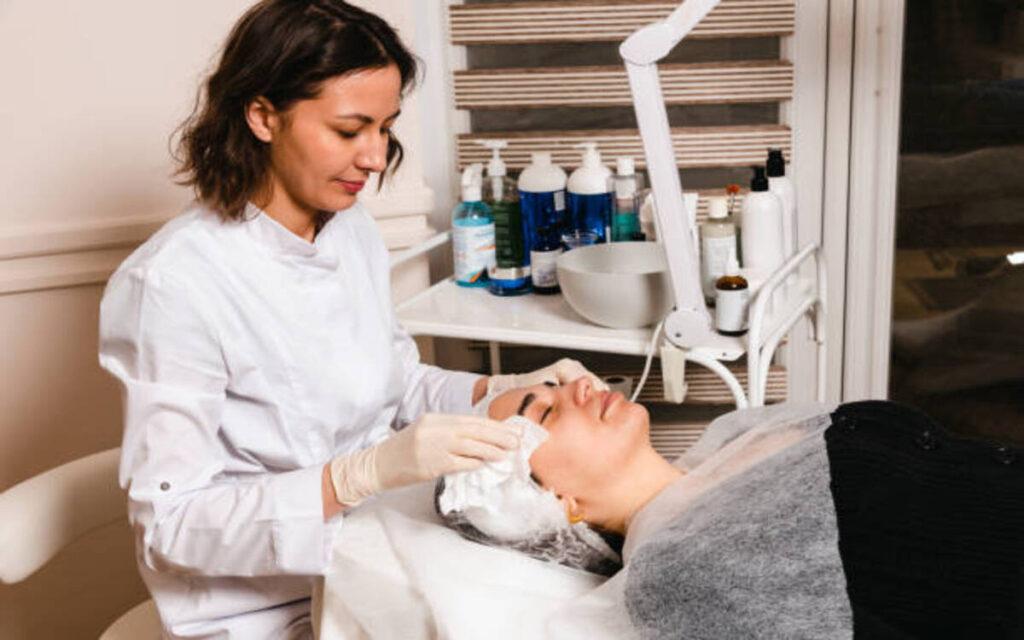
Skincare Regimens for Collagen Support
Topical Treatments and Ingredients
- Retinoids – Derivatives of Vitamin A that increase collagen production in the dermis and thicken epidermal skin layers for smoother skin.
- Peptides – Amino acid chains that signal cells to synthesize more collagen. Palmitoyl pentapeptide is clinically shown to stimulate collagen growth.
- Antioxidants – Ingredients like niacinamide, Vitamin C, Vitamin E, resveratrol, and green tea neutralize collagen-damaging free radicals caused by UV and pollution.
- Growth Factors – Biologically active proteins that regulate collagen synthesis, demonstrated in studies to increase procollagen content.
- Hyaluronic Acid – Powerful humectant that retains moisture in the skin for increased collagen production, as collagen requires hydration.
Importance of Moisturization and Sun Protection
- Moisturizers – Hydrating skin optimizes the extracellular matrix environment for collagen renewal. Humectants like glycerin and emollients like shea butter keep skin hydrated.
- Sunscreens – Shielding skin from UV damage with broad-spectrum SPF prevents degradation of existing collagen from the sun’s rays.
Professional Treatments and Therapies
- Microneedling – Using small needles to create controlled micro-injuries to the skin elicits the body’s wound healing response and generates new collagen.
- Laser Resurfacing – Ablative lasers remove damaged outer skin layers while stimulating collagen remodeling and thickening the dermis.
- Ultrasound – Focused ultrasound waves initiate collagen regeneration and skin tightening through thermal effects boosting collagen and elastin.
- Radiofrequency – Heating fat layers prompts new collagen synthesis by dermal fibroblasts, shown to increase collagen density in the skin.
Dietary Supplements and Nutrition
- Collagen protein supplements – Hydrolyzed collagen peptides provide essential amino acids to encourage the body’s own collagen production.
- Vitamins A, C, E – These vitamins are cofactors in collagen synthesis reactions and protect against free radical damage.
- Hyaluronic acid pills – Oral hyaluronic acid supplements help hydrate skin cells from within to facilitate collagen generation.
Lifestyle Changes and Habits for Collagen Enhancement
Nutrition and Collagen-Rich Foods
- Protein-rich foods – Amino acid-containing proteins like meat, fish, eggs, bone broth, beans, nuts and seeds are building blocks for endogenous collagen synthesis.
- Fruits and vegetables – Citrus, berries, leafy greens, tomatoes, and red/yellow peppers provide collagen-boosting Vitamin C. Carotenoid antioxidants are found in carrots, sweet potatoes, and squash.
- Natural collagen sources – Poultry, eggshell membranes, bone broth, and marine sources like fish, shellfish, and seaweed contain collagen and stimulatory amino acids.
Exercise and its Influence on Collagen Production
- Weight-bearing exercise promotes collagen production by placing controlled micro-strains on tendons and ligaments.
- Muscle contraction during resistance training also stimulates collagen synthesis in tendons and muscle connective tissue.
- Cardiovascular exercise increases blood flow and nutrient delivery throughout the body, transporting collagen building blocks.
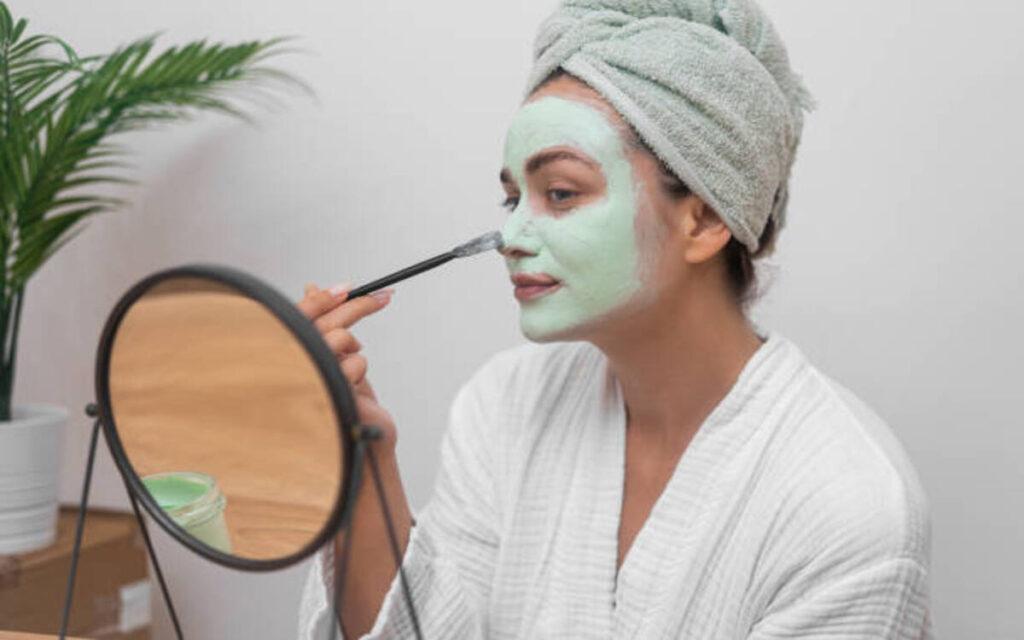
Dietary Sources of Collagen to Maintain Youthful Skin
Consuming natural collagen sources provides active protein fragments directly used for structural collagen fibers throughout the body. Collagen-based supplements are also growing in popularity.
- Bone broth – Simmering bones and connective tissue breaks down collagen, releasing amino acids like glycine and proline into the liquid broth.
- Eggs – The shells contain collagen-building proline and sulfur-containing proteins important for collagen cross-linking. Egg whites provide skin-enhancing biotin and methionine.
- Citrus fruits and berries – Oranges, lemons, limes, strawberries, blackberries, blueberries, raspberries, etc are high in Vitamin C needed for collagen formation. They also contain collagen-protective bioflavonoids.
- Collagen supplements – Collagen peptides and marine collagen derived from fish, bovine, or eggshell membranes are readily absorbed sources shown to improve skin hydration and elasticity.
- Vitamins A, C and antioxidants – These vitamins obtained from colorful plant foods protect and preserve collagen structures by neutralizing damaging free radicals.
Emerging Research and Future Directions
Cutting-edge studies are expanding our understanding of optimizing collagen for youthful skin:
- Innovations in Collagen Replacement – 3D bioprinting of human collagen constructs may enable collagen regeneration similar to natural matrices in the skin for wrinkle reduction.
- Genetic Factors in Collagen Synthesis – Research on genes involved in extracellular matrix homeostasis is shedding light on biological mechanisms regulating collagen formation and breakdown.
FAQs on How Collagen Affects Skin Elasticity Over Time
What are the benefits of using topical collagen on the skin?
Some studies indicate topical collagen can temporarily improve skin hydration, elasticity, and wrinkling by forming a protective surface film. However, collagen molecules are too large to penetrate deeply when applied topically.
How does marine collagen differ from other collagen sources in terms of skin health?
Marine collagen derived from fish is more absorbable due to low molecular weight and low allergenicity. It contains antioxidant amino acids not found in mammalian collagen. Clinical trials show marine collagen supplements improve skin elasticity, hydration, wrinkles and age spots.
Can oral collagen supplements improve skin elasticity, and how are they absorbed?
Yes, ingestible collagen peptides and hydrolyzed collagen have been shown to increase skin elasticity, hydration and dermal collagen density. Collagen supplements are enzymatically digested into small peptides that are absorbed through the intestines into the bloodstream for distribution.
What are the potential side effects associated with collagen supplements?
Collagen derived from common food sources like bovine, marine life and eggs are generally well tolerated, with few reports of adverse effects. Very high doses may potentially cause digestive upset in sensitive people. Those with shellfish allergy should avoid marine collagen.
How long does it typically take to see changes in skin elasticity after starting collagen supplementation?
Research indicates patients can notice increased skin elasticity, improved moisture levels and reduced wrinkling associated with increased collagen levels after about 4-8 weeks of daily collagen peptide supplementation. Maximal results may take 2-3 months.
Is there evidence to suggest that collagen intake can reverse signs of aging, such as sagging skin, in older individuals?
While collagen supplementation does appear to improve skin elasticity, there is limited evidence showing reversal of sagging skin or collagen deficits from intrinsic aging. Collagen supplements seem most effective as a preventative approach against age-related decline when started earlier in life.
Conclusion on How Collagen Affects Skin Elasticity Over Time
Collagen is the key structural protein vital for maintaining youthful, supple and resilient skin. Our collagen supply diminishes over time due to intrinsic and extrinsic factors, leading to wrinkles, sagging skin, and reduced elasticity.
Supporting collagen growth and hindering deterioration through skincare, diet, and lifestyle changes can help retain plump, flexible, wrinkle-free skin as we age.
Using science-backed topical treatments, collagen supplements, nourishing foods, and collagen-boosting habits allows us to preserve this precious protein for skin that stays smooth, firm and springy well into our mature years.
We hope this detailed article on How Collagen Affects Skin Elasticity Over Time helps. Please share
References
Here are 3 article reference links about collagen:
- https://pubmed.ncbi.nlm.nih.gov/2178722/ – “Undenatured type II collagen causes no immunological response in patients with rheumatoid arthritis.” This study looked at potential immunological responses to undenatured collagen supplements.
- https://onlinelibrary.wiley.com/doi/abs/10.1111/jocd.12174 – “Oral supplementation with specific bioactive collagen peptides improves nail growth and reduces symptoms of brittle nails.” This examined the effects of collagen supplements on nail health.
- https://academic.oup.com/cdn/article/2/12/nzy058/5126199 – “Postprandial collagen supplementation alleviates delayed onset muscle soreness after strenuous eccentric exercise.” This article explored how collagen supplements can aid muscle recovery after intensive workouts.
These references provide reviewed research into some of the health and nutritional benefits of collagen supplements, including potential effects on arthritis, skin, nails, and muscle tissue.
- This Golden Revive Plus Discount Code Saves You Up To 40% Instantly – But Only If You Act Now! -
- How to Increase Collagen Production Naturally Through Diet: The Top Foods and Tips – More Collagen, Firm, Healthy Skin and Less Wrinkles -
- Best Vitamins for Female Hair Growth: These 7 Vitamins Will Change Your Hair Game Forever! -
-
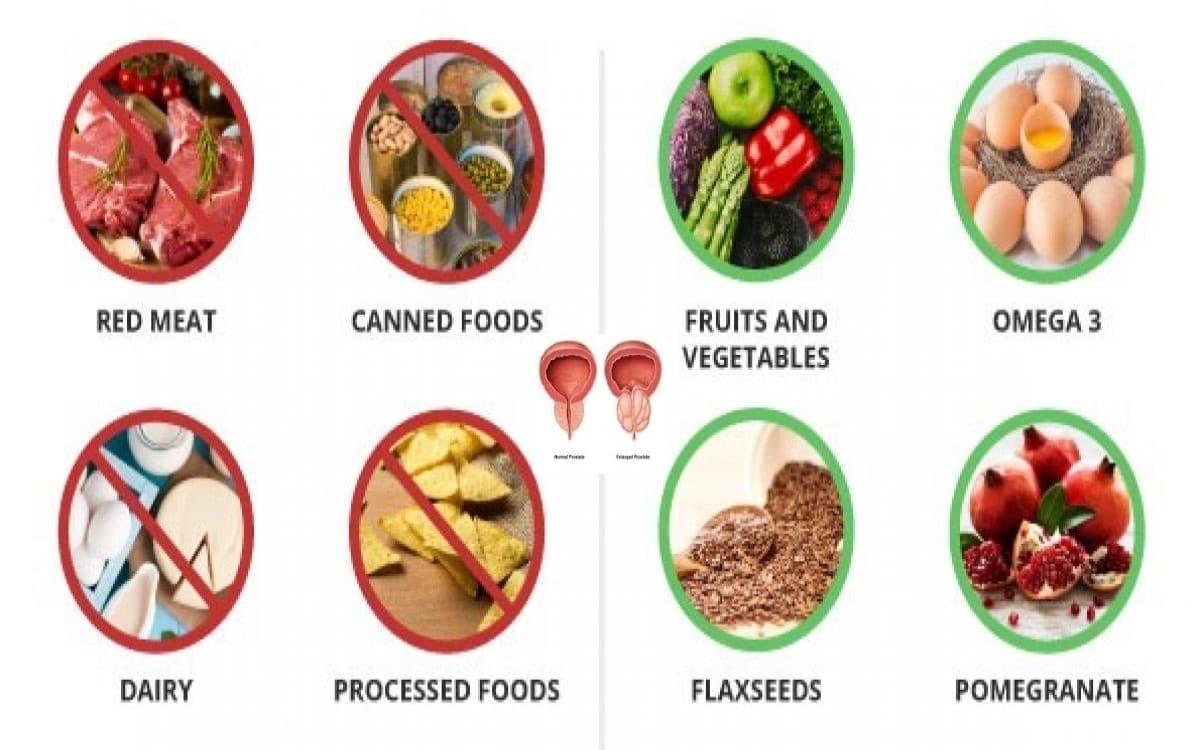
 Food7 years ago
Food7 years agoFoods to Avoid for Prostate Health – What Not to Eat If You Have An Enlarged Prostate
-
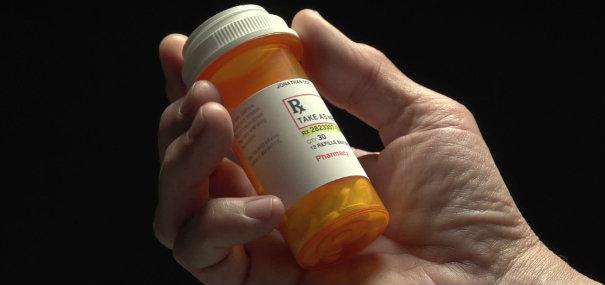
 Diabetes6 years ago
Diabetes6 years agoMetformin Side Effects – Why Doctors In The Know No Longer Prescribe Metformin
-

 Uncategorized2 years ago
Uncategorized2 years agoTop Rated ED Treatment Tablets In 2024 – Men, Should Try This Tonight and You’ll Never Need Viagra Again!
-
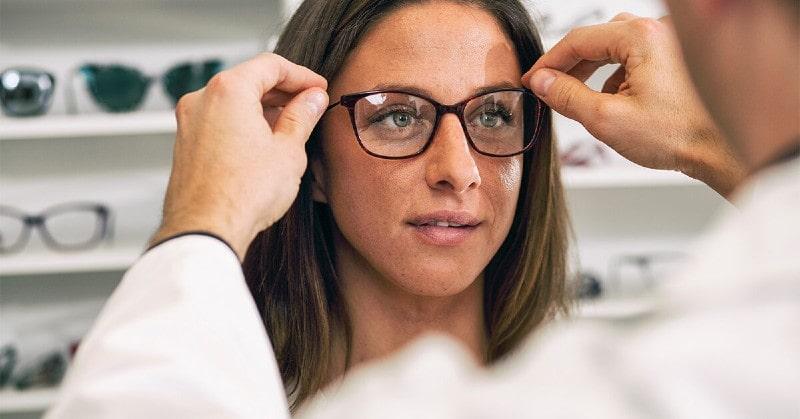
 America's Best2 years ago
America's Best2 years agoAmerica’s Best Contacts EyeGlasses – What They Don’t Tell You “Pros and cons”
-

 Uncategorized2 years ago
Uncategorized2 years agoGolden Revive Plus Customer Reviews – Your Joints, Muscles and Nerves will immediately begin to heal Fast?
-
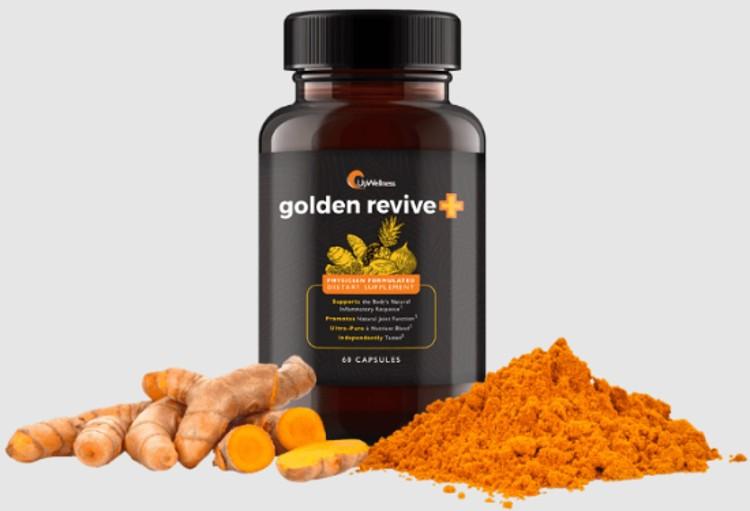
 Golden Revive Plus2 years ago
Golden Revive Plus2 years agoGolden Revive Plus Customer Reviews – Your Joints, Muscles and Nerves will immediately begin to heal Fast?
-
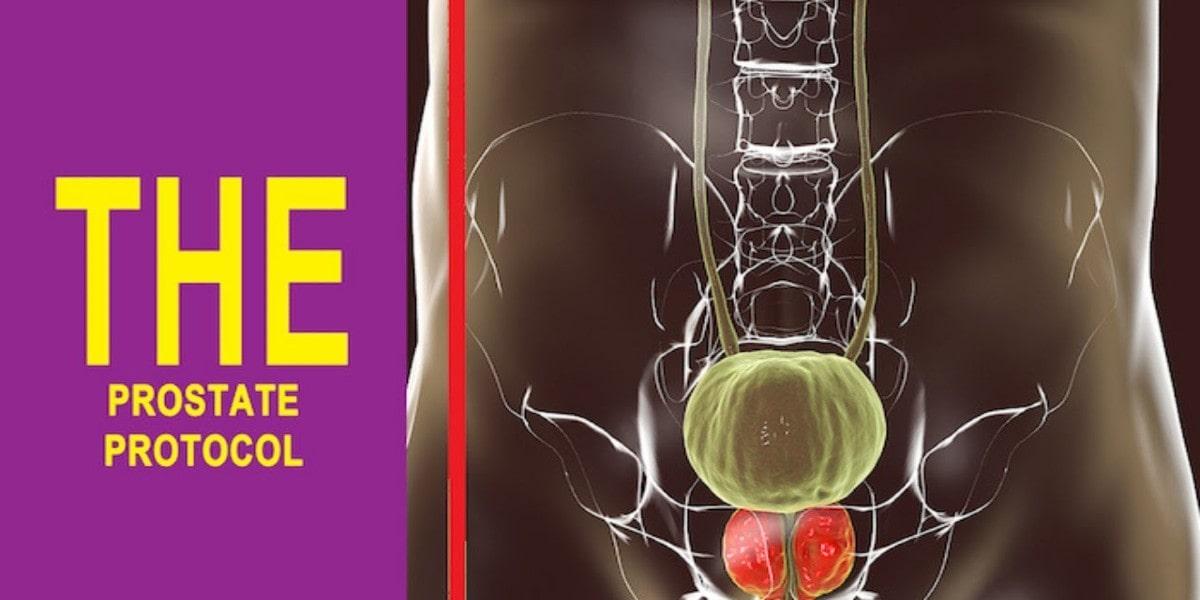
 Mens Health1 year ago
Mens Health1 year agoThe Prostate Protocol Review – Does it Work, Is it a Scam? Get the facts Before you buy!
-
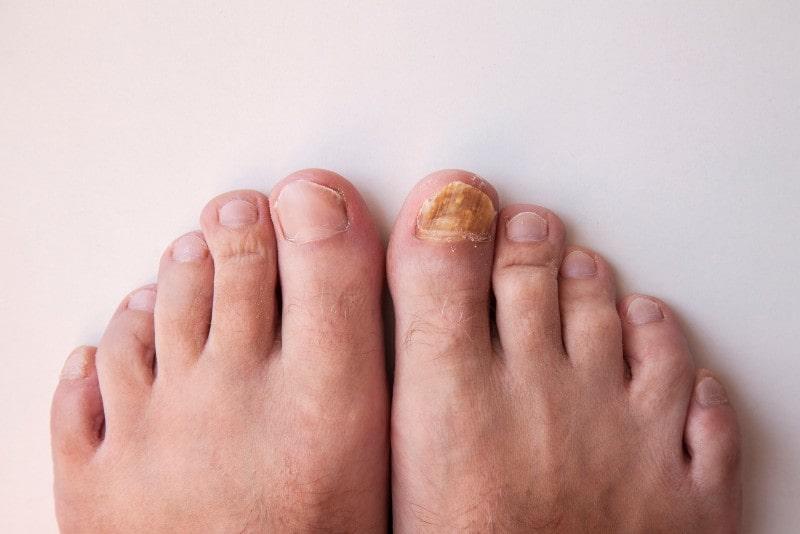
 Skin Care2 years ago
Skin Care2 years agoBest Cure for Nail Fungus – What They Don’t Tell You “Effective Formula for Fungal Infections”


